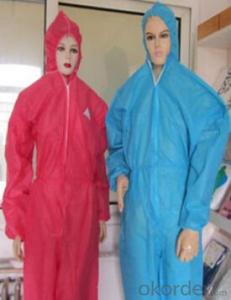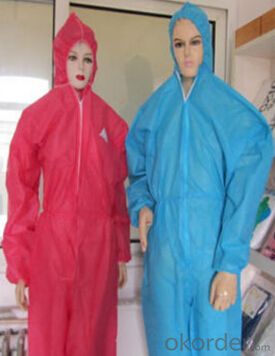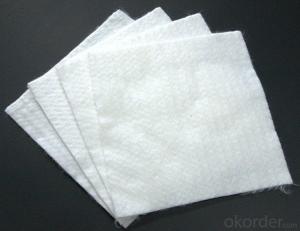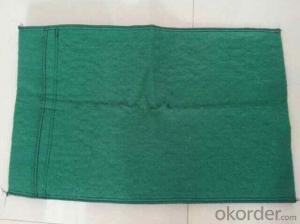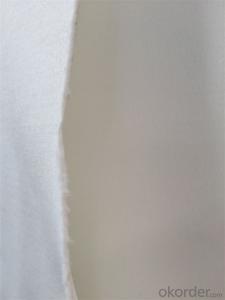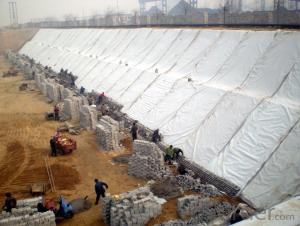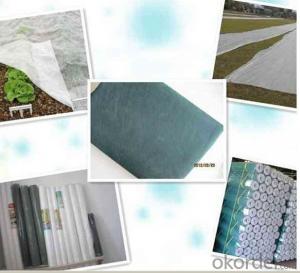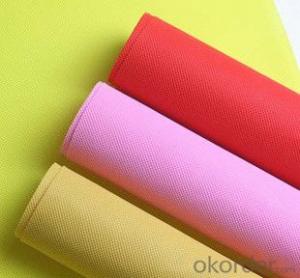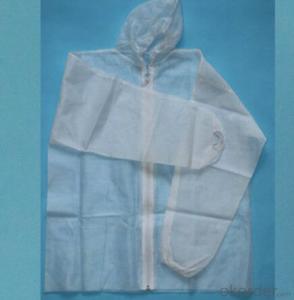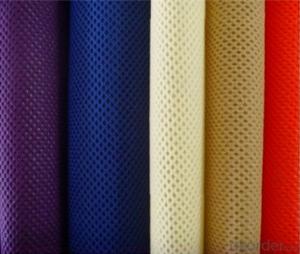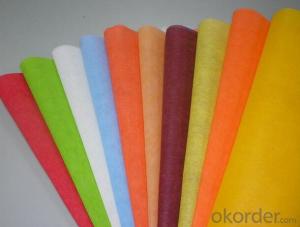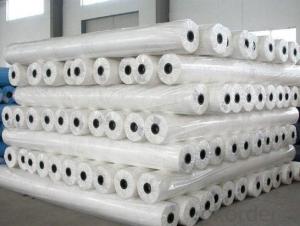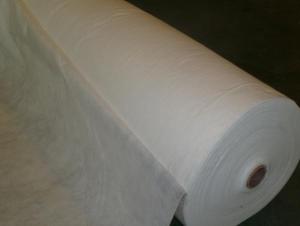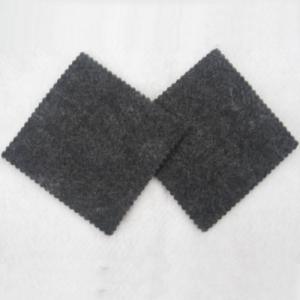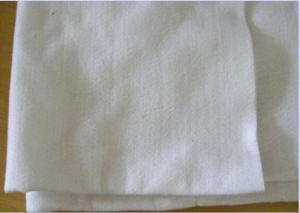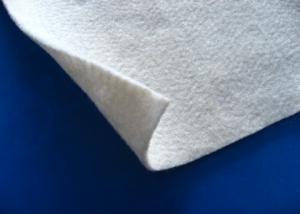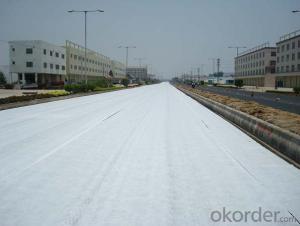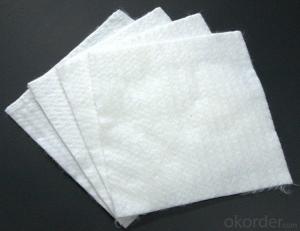Bidim Colorful PP Spunbonded Nonwoven Fabric Cloth Géotextile
- Loading Port:
- China Main Port
- Payment Terms:
- TT OR LC
- Min Order Qty:
- -
- Supply Capability:
- -
OKorder Service Pledge
OKorder Financial Service
You Might Also Like
Introduction of polypropylene spunbond non woven fleece fabric for cloth
is used to protect the t can protect the doctors or workers safely and protect them from desease.
Specification of PP Spunbond Non Woven Fabric:
100% Polypropylene/100% PP
Color:Any color can be available
GSM(gram per square meter): 9-180GSM
Roll Width 4-320cm
Roll Length According to your requirement
Technics Nonwoven Spunbonded
Feature Waterproof, Mothproof, Eco-friendly, Non-toxic, Breathable, Anti-Bacteria
Packing of Polypropylene Spunbond Non Woven Fabric:
Each roll is wrapped in a plastic bag with label specification with paper tube inside .
Feature Waterproof, Mothproof, Eco-friendly, Non-toxic, Breathable, Anti-Bacteria
- Q: Can geotextile skin be connected?
- Geotextile skin can be touched. Geotextile production of raw materials is polyester fiber, polyester has been widely used in daily life. Such as clothes are also a lot of polyester material. So do not worry, geotextile is not harmful to the human body.
- Q: Is there a geotextile between the waterproofing membrane and the rigid layer?
- Need to prevent the waterproof layer from being pierced. Huazhi geotextile material manufacturers
- Q: What are the geotextiles for concrete health
- Is non-woven material
- Q: What is the latest offer for geotextile prices?
- Geotextile Product Description: Geotextile is made of polypropylene, acrylic yarn as raw material woven by the geosynthetics, widely used in water conservancy, electricity, harbors, highways, railway construction and other geotechnical engineering. Geotextiles Category: Geotextiles a wide range of ordinary geotextile refers to the permeable geotextile, also known as short wire geotextile, polyester geotextile other filament geotextile, waterproof geotextile and so on. Geotextile Price Description: There are many manufacturers of geotextiles across the country, the product offers different prices affected by the impact of raw materials and regional differences, a good product should be a penny goods. The price according to product specifications offer direct contact consultation 182 power 6686 words 2233 to find professional manufacturers to understand, product prices dynamic. Hope to help you
- Q: GB waterproof geotextile what price
- GB waterproof geotextile details please see
- Q: Where can the general use of geotextile water can be bought
- Lingxian geotextile manufacturers, welcome to visit
- Q: What kind of geotextiles are used to filter the geotextile?
- Short geotextile and filament geotextile
- Q: What are the limitations of using geotextiles in high-water flow conditions?
- One limitation of using geotextiles in high-water flow conditions is their susceptibility to clogging. As water flows through the geotextile, it can carry fine particles and debris that may accumulate and clog the material, reducing its effectiveness. Additionally, in extreme flow conditions, the geotextile may not provide sufficient resistance or protection against erosion, leading to potential failure. Therefore, careful consideration of flow rates and proper maintenance are crucial to mitigate these limitations and ensure optimal performance of geotextiles in high-water flow conditions.
- Q: What are the maintenance requirements for geotextile installations?
- The maintenance requirements for geotextile installations typically involve regular inspection to ensure the fabric is intact and functioning properly. Any signs of damage or deterioration should be repaired or replaced promptly. Additionally, geotextiles may require occasional cleaning to remove debris or sediment that can affect their performance. Overall, proper maintenance practices can help prolong the lifespan and effectiveness of geotextile installations.
- Q: How do geotextiles improve the stability of slopes?
- Geotextiles improve the stability of slopes by acting as a barrier against soil erosion and promoting better drainage. They are installed within the slope to reinforce the soil structure, prevent the loss of soil particles, and enhance the overall stability of the slope.
Send your message to us
Bidim Colorful PP Spunbonded Nonwoven Fabric Cloth Géotextile
- Loading Port:
- China Main Port
- Payment Terms:
- TT OR LC
- Min Order Qty:
- -
- Supply Capability:
- -
OKorder Service Pledge
OKorder Financial Service
Similar products
Hot products
Hot Searches
Related keywords
